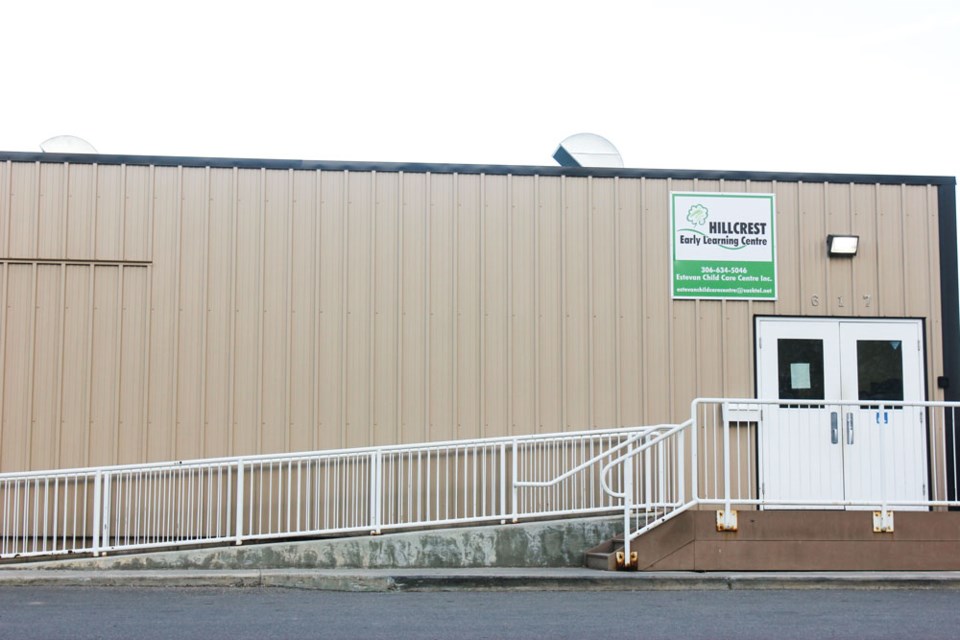The Hillcrest Early Learning Centre is promoting the work of its early childhood educators, and the other such educators in the community.
May is Early Childhood Education Month and May 15 is Early Childhood Educator Appreciation Day. In the case of the Hillcrest Early Learning Centre, they have 15 educators who all have their early childhood education Level 1 certification, or are working towards it. Educators regularly take classes to improve their training as well.
Waed Dakkak, the administration director at the early learning centre, said the role of an educator is very important in the community, but it is vague. It is often lost somewhere between that of a babysitter, a daycare worker and teacher.
“An educator’s role in an early childhood facility is to help watch over your child’s safety, of course, and help them with their needs, but also help them learn to educate themselves,” said Dakkak.
“The children at the ages of two to five are at a stage where they absorb a lot of information, and they absorb a lot of ideas of how they will grow up or who they will be when they grow up.”
Having an educator helps them learn the direction their lives will take, and it will help strengthen social and developmental skills, she said.
“It will help the children learn how to trust, learn how to ask for help, learn how to communicate, and learn that it’s a community,” said Dakkak.
They learn how to work with one person, but they also transition into being an independent learner.
Early childhood educators don’t take a role of a parent, but they are people a child spends a lot of time with. Dakkak has a child at the centre, and she noted her child will spend eight hours a day with the educator.
“A child has to learn to trust that person,” said Dakkak. “A child has to learn that person believes in them, and they are there to support them and help them go through every step along the way.”
An early childhood educator faces a demanding job, she said. At the end of the work day, the educator takes their concerns and worries about children home with them.
“Many of my educators go home and work on Pinterest and Google, and try to get programming information,” said Dakkak. “They try to prepare work for the children that might interest them. So it’s a profession they live through here those eight or nine hours that they’re here … and then over the weekends and after work. It’s a job where you have to love it to be in it, to be honest.”
The educators care about the safety of the children, Dakkak said, calling it their top priority. There can be no negligence, discrimination or any other situation where the child comes to harm. And an educator has to look after numerous children.
“You have to monitor their developmental skills and monitor their needs,” said Dakkak. “Make sure that they are all in safe hands, that they are all happy and they are all safe with you.”
It can be stressful at times, but most educators believe looking after a child’s development is rewarding, and when they see a child graduate from the centre and the progress it has made, they know their efforts have paid off.
The bond between a child and an educator is a special one, she said, particularly in a small community because they will see each other regularly after the child leave an early learning centre.
The children are very appreciative of the efforts of the educators.
“All of our children are wonderful children, but that doesn’t mean they won’t have a rough day,” said Dakkak. “It’s our job as educators to listen to them and make it easier and make it better.”
When an educator stops, looks the child in the eyes and listens to what they have to say, it will further the relationship between the two.
Dakkak has first-hand knowledge about the bond between an educator and a child. She was an educator in Dubai from 2000 to 2005. Her parents are both teachers, as her father is a mathematics and English teacher and her mother is an Arabic teacher.
“I’ve worked in that field and I’ve worked in the corporate field, and I’ve realized this is my passion,” said Dakkak. “No matter how much I try. No matter where I go, and no matter where there’s more money, I’ve realized education is my passion.”



